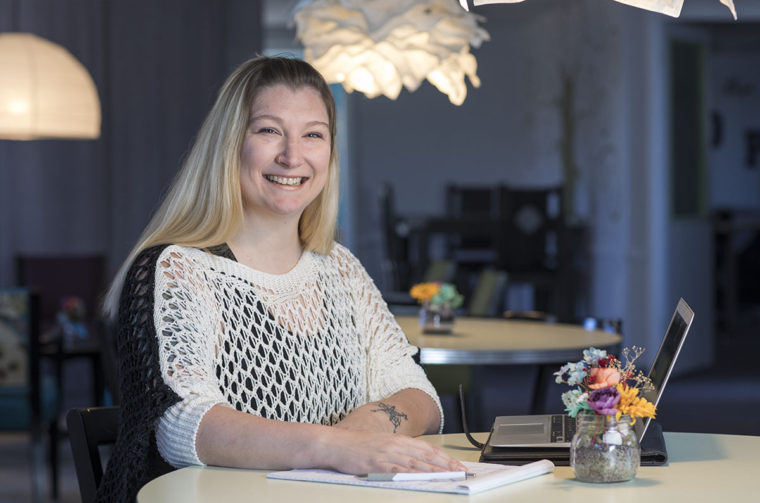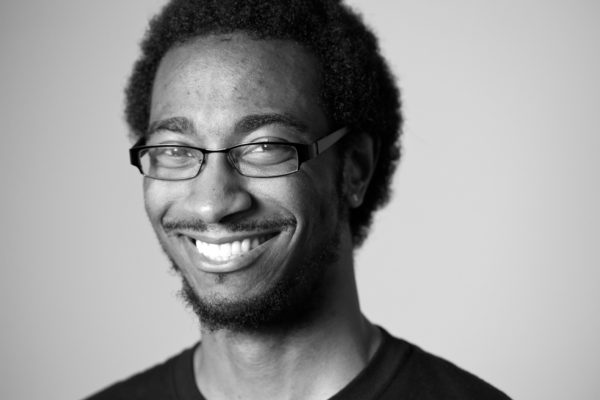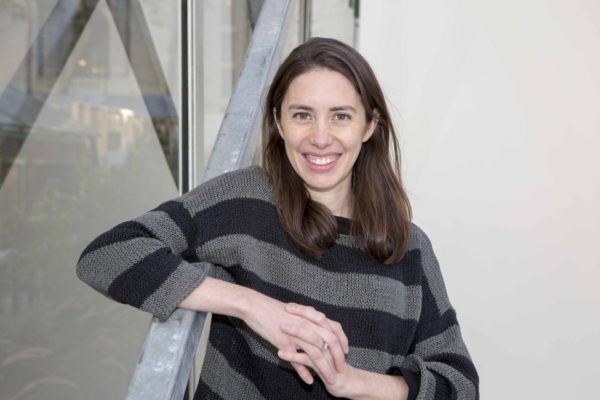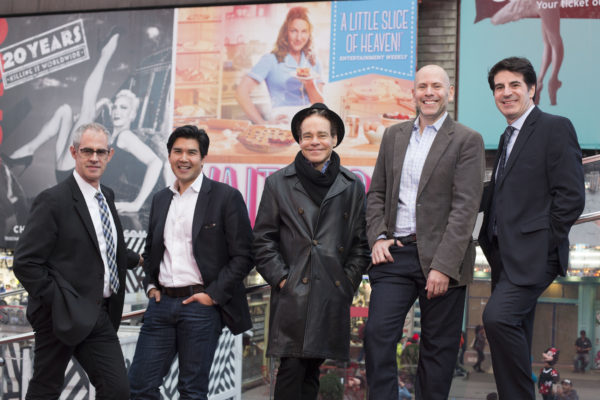Katie Rhoades entered the Brown School with a clear mission — to help women who had been involved in the commercial sex industry. She’d been on this mission ever since she escaped three years of sexual trafficking at age 21. From that, she learned about the dearth of institutions devoted to helping women get out of the commercial sex industry and decided to help.
First, Rhoades studied social work at Metropolitan State University in the Twin Cities. Her professors encouraged her to apply to graduate school, and she matriculated at Brown in 2010. With support from her Brown School professors, Rhoades decided that, after she graduated, she would launch her own agency to help survivors of sex trafficking.
“I had a board of directors, and we were going to start the agency within six months,” Rhoades says with a laugh. “I was 30 when I graduated, and I thought that I was immune from that grad school gusto — not so much.”
While she worked to launch the agency, she found a job at Easter Seals Midwest, helping adults with mental disabilities and managing a staff of 20. The job easily took 60 hours or more a week.
In her free time, Rhoades educated people about sex trafficking and how to help victims. She developed trauma-informed therapeutic services and provided them to survivors at residential shelters and in mental health programs. She also taught hotel staff how to identify commercial sex in their hotels.
Jason Kander, then Missouri’s Secretary of State, tapped Rhoades to advocate for a change to Missouri’s Safe at Home Bill, which provides P.O. boxes free of charge to victims of domestic abuse. He wanted to add sex trafficking victims to those eligible.
“There was a lot of politics around it,” Rhoades grumbles. “That’s an area where I get really frustrated because we’re putting politics over the welfare of individuals. I did call it out,” she says with a laugh. “We had a human trafficking awareness day [in Jefferson City], and I was the speaker. I just said, ‘It really irritates me that politics is getting in the way. We need to serve women.’”
The changes to Safe at Home did pass, and Rhoades has since joined a new Statewide Anti-Trafficking Task Force formed by Josh Hawley, current Missouri attorney general. “I’m not a big fan of coalitions because a lot of times they’re pretty ineffective,” Rhoades says. “But this one’s moving and it’s moving quickly, and I like that. I’m a get-stuff-done person.”
So Rhoades’ struggles to fund her agency right away were frustrating her. By 2015, she decided, “It’s either going to happen or it’s not. And if it’s not, I need to move on.” She was even planning a move back to Minnesota when a 3-year grant from the National Foundation, one that she had been working on for a year, came through.
Rhoades opened Healing Action in November 2015. Unlike many other organizations, it is open to any woman trying to escape any kind of commercial sex.
“We openly say that how you got in isn’t a concern for us because the trauma and exploitation happen regardless,” Rhoades says. “Women already have that self-blame and self-hatred because of the ‘choices’ they’ve had to make, so we don’t want to contribute to that.”
As Healing Action’s executive director, Rhoades built a therapeutic program on the relational-cultural therapy model, which says that trauma happens in the context of relationships and most trauma is interpersonal. The best way to recover is through healthy relationships. Healing Action promotes “growth-fostering relationships” through trauma therapy, peer coaching, therapeutic book study and peer support groups. Plus, all of the peer support specialists, who do one-on-one coaching and group facilitation, are survivors themselves.
Rhoades says that seeing her agency come to fruition has had a huge impact on her own healing from trauma and has been deeply satisfying. “It sounds corny to me, but I really do love my job,” she says. “It’s challenging, and I’ve learned a lot about myself in the process. I like coming to work every day.”



